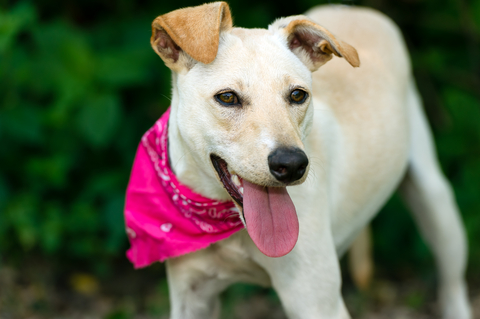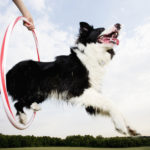New Puppy Planning Tips
January 29, 2021
Dogs are known for being lovable floofs, loyal companions, and oftentimes for being energetic. Yet what happens if your dog’s energy level becomes a concern? When your dog starts exhibiting behavior that’ goes beyond energetic to over excitable, it’s time to take a step back and assess. Keep reading to understand the difference between energetic, excitable and hyperactive dogs.
Hyperactive dogs are different than excitable dogs. They’re known for abnormally short attention spans, impulsiveness, distraction issues, sensitivity to sudden movements, intolerance for stillness or boredom, adverse to repetition, and strong resistance to restraint. If you’re concerned that your dog is hyperactive, best to check with your veterinarian or trainer.
If you or your vet or your trainer determines the pup is excitable not hyperactive, is there an explanation for the high-energy behavior and ways to adjust the habits? Yes! Excitable dogs typically just need more attention, along with more focused management. Their mental and physical states require more stimulation and more training.

How do you support an excitable dog and help them grow through their behaviors? With key strategies. Management will help their training and temperament, and could consist of using a crate, muzzle, leash sleeve or exercise pen. All of the tools can help manage your dog’s excitable behavior. Outdoor physical exercise is huge part of addressing excitable behavior. This type of exercise goes beyond a walk on a leash. Try taking your dog hiking, to dog parks or open spaces where they can safely run while responding to a “come” call. Fenced in yards and puppy playdates are further physical options.
Indoor physical exercise is another tool to tame excitability. Fetch in the hallway (or even on the stairs if your pup is healthy) is a great option, along with treadmills, ball pits (think kiddie pool full of balls), treat searches and food-based toys like Kongs. Mental exercise is just as important as physical exercise. Consider purchasing puzzle toys, and working toward counting and imitation exercises. And just like children, many dog’s love being read a good book!
How to Spot and Excitable Dog
- Excessive mouth breathing
- Leash-biting and tugging
- Unwanted jumping
- “Flopping” or body slamming
- Frustrated or hostile reactivity
- Excessive barking
- Over-aroused play with people and/or pets
Please remember that just because your dog is high energy and excitable, doesn’t mean their hyperactive or have canine ADHD. Hyperactive dispositions can sometimes even stem stress-related issues, and your pup may need a more strategic behavior modification program.
For a free consultation from It’s A Dog’s World’s skilled training staff visit www.ItsADogsWorld.biz.

